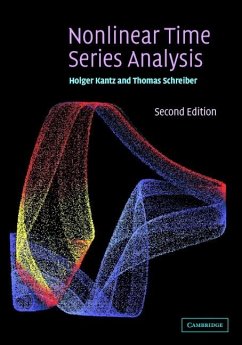The paradigm of deterministic chaos has influenced thinking in many fields of science. Chaotic systems show rich and surprising mathematical structures. In the applied sciences, deterministic chaos provides a striking explanation for irregular behaviour and anomalies in systems which do not seem to be inherently stochastic. The most direct link between chaos theory and the real world is the analysis of time series from real systems in terms of nonlinear dynamics. Experimental technique and data analysis have seen such dramatic progress that, by now, most fundamental properties of nonlinear dynamical systems have been observed in the laboratory. Great efforts are being made to exploit ideas from chaos theory wherever the data displays more structure than can be captured by traditional methods. Problems of this kind are typical in biology and physiology but also in geophysics, economics, and many other sciences.
Dieser Download kann aus rechtlichen Gründen nur mit Rechnungsadresse in A, B, BG, CY, CZ, D, DK, EW, E, FIN, F, GR, HR, H, IRL, I, LT, L, LR, M, NL, PL, P, R, S, SLO, SK ausgeliefert werden.


